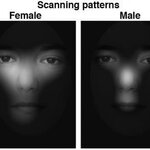
Far more people are willing to donate their eyes to research than actually are registered to donate, according to a paper in
Current Eye Research.
While demand for tissue remains high, the number of human eyes donated for research declined 28 percent between 1997 and 2004, said Andrew Williams, a third-year Michigan State University College of Human Medicine student.
Of roughly 200 patients with eye diseases surveyed in the study, 90 percent said they were willing to donate their eyes.
Among patients who were not registered to donate, 77 percent gave what the researchers called non-…


